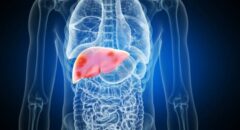
If you’ve recently been diagnosed with chronic liver disease (CLD), we want you to know that you’re not alone in this journey. Many individuals share similar experiences, and there’s crucial information and support available tailored to address the specific challenges faced by our community.
Understanding that CLD is a progressive deterioration of liver function for more than six months might seem overwhelming, but it’s crucial to remember that knowledge is power. The first step after a diagnosis is working with your healthcare provider, especially one who is sensitive to the unique health disparities faced by Black patients, to determine the cause and develop a personalized treatment plan.
It’s important to note that chronic liver disease affects all racial and ethnic groups, but studies show that there are specific risk factors and disparities in its prevalence within the Black community. For example, non-alcoholic fatty liver disease (NAFLD), the most prevalent type of CLD, is known to disproportionately affect Black individuals.
One of the challenges with chronic liver disease is that it often presents with few or no symptoms, making it tricky to assess treatment effectiveness based solely on how you feel. That’s where regular monitoring comes into play. Your doctor will utilize a variety of tests to keep tabs on your liver health and the progress of your treatment.
Let’s take a look at some of the common tests your doctor might use:
1. Alanine Transaminase (ALT) Test
This measures the level of an enzyme found mostly in the liver, providing insights into inflammation and scarring. It’s an essential component of the Fibrosis-4 Index, particularly relevant for Black individuals who may be at a higher risk due to genetic factors.
2. Aspartate Transaminase (AST) Test
This assesses liver cell damage by measuring the levels of a specific enzyme released into the bloodstream. It’s another key factor in determining the Fibrosis-4 Index.
3. Platelet Count
A simple blood test that, when combined with ALT and AST, helps evaluate liver inflammation and assess the risk of advanced liver disease.
RELATED: Natural Support for Black Patients with Chronic Liver Disease
4. Serum Alkaline Phosphatase (ALP) Test
This measures the level of alkaline phosphatase in the blood, indicating chronic liver disease and assessing liver functioning.
5. Gamma-Glutamyl Transpeptidase (GGT) Test
This test provides information about liver function and helps detect alcohol ingestion by measuring the








